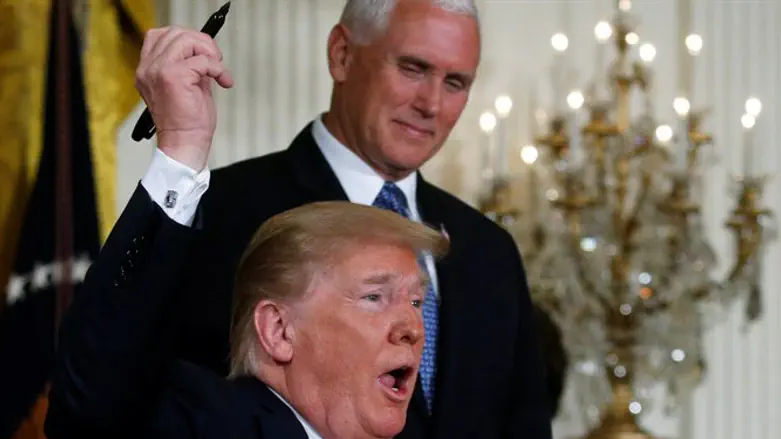
The United States Supreme Court on Tuesday upheld US President Donald Trump's travel ban on seven nations five Muslim nations in a 5-4 majority ruling.
Chief Justice John Roberts wrote the majority opinion together with the four other conservative justices.
According to the majority opinion, the travel ban falls “squarely within the scope of Presidential authority.”
"The [order] is expressly premised on legitimate purposes: preventing entry of nationals who cannot be adequately vetted and inducing other nations to improve their practices," Roberts wrote. "The text says nothing about religion," Justice Roberts wrote.
President Trump released a statement praising the Supreme Court's decision.
"Today’s Supreme Court ruling is a tremendous victory for the American People and the Constitution," Trump said. "The Supreme Court has upheld the clear authority of the President to defend the national security of the United States. In this era of worldwide terrorism and extremist movements bent on harming innocent civilians, we must properly vet those coming into our country. This ruling is also a moment of profound vindication following months of hysterical commentary from the media and Democratic politicians who refuse to do what it takes to secure our border and our country. As long as I am President, I will defend the sovereignty, safety, and security of the American People, and fight for an immigration system that serves the national interests of the United States and its citizens. Our country will always be safe, secure, and protected on my watch."
The ban, which originally applied to Muslim-majority nations Iran, Libya, Somalia, Syria, and Yemen, had been subject to legal challenges since Trump first signed the order. The ban was later expanded to include sanctions on non-Muslim nations North Korea and Venezuela. The African nation of Chad was temporarily included in the ban before being removed in April.
The US Supreme Court had previously allowed the ban, put in place by Trump by presidential proclamation in September, to go into effect while litigation challenging it continues.
In February, the US Court of Appeals for the 4th Circuit in Virginia declared Trump’s travel ban unconstitutional. The decision came a month after the Supreme Court agreed to hear an appeal from a similar decision from the 9th Circuit Court of Appeals in San Francisco.
In addition, the attorneys general of 16 states filed an amicus brief with the Supreme Court against the travel ban
